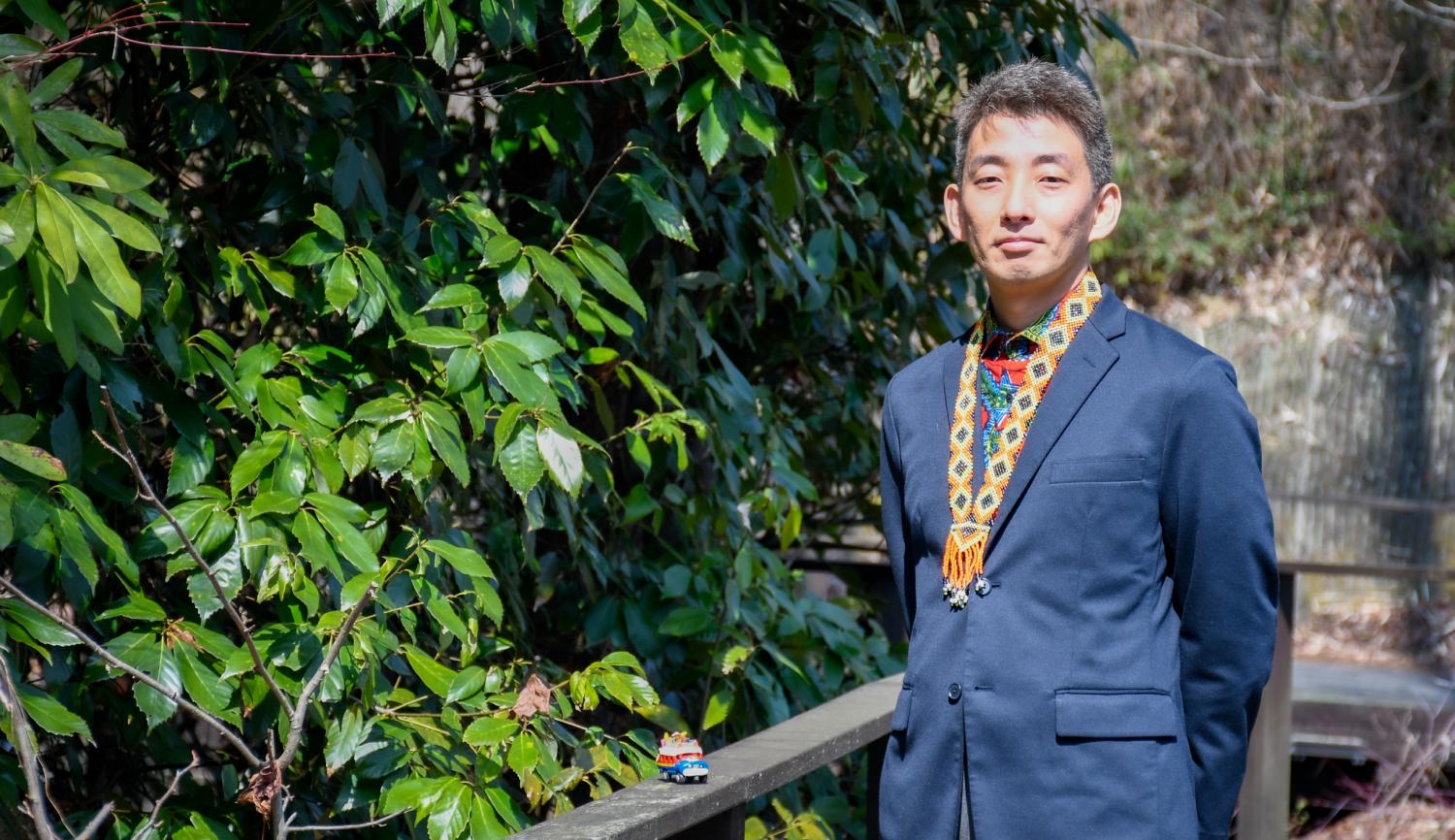
HONGO Shun
Associate Professor, RIHN / Junior Associate Professor, Kyoto University
- Related links
Program/Project
Fair and Sustainable Hunting Management through Dialogues between Local Knowledge and Science
Position & Title
Associate Professor, RIHN / Junior Associate Professor, Kyoto University
Area of Expertise
Conservation Science, Wildlife Management, Primatology
Biography
Shun was born in Nagoya, Japan, and earned his PhD in science from the Graduate School of Science, Kyoto University in 2016. After working at the Primate Research Institute at Kyoto University, the Center for African Area Studies at Kyoto University and the Japan International Cooperation Agency (JICA), he has been in his current position since 2024. With long-term field studies as the core research style, he combines scientific methods, including camera trapping, with the local knowledge of skilled hunters to develop wildlife management models for tropical rainforest areas.
Q&A
- What kind of research are you doing at RIHN?
- My first introduction to the world of research was in primate ecology. Primatology is a somewhat “loose” research field where a wide range of disciplines are allowed as long as it involves primates, including humans. So, primatology gave me the opportunity to meet a wide range of experts. Through these encounters, my interests shifted from socio-ecology to population ecology and then to more applied fields such as wildlife management and conservation science. In my project at the RIHN, I hope to enjoy research that also encompasses ecological anthropology and the sociology of science. I want to help solve the wild meat crisis in rainforests and help bring about equal cooperation between scientists and local people.
Although I have moved through various research fields, I have always emphasised “getting out of the laboratory and basing my research on field experiences and data.” Whether engaging in abstract discussions or examining quantified data, I have consciously tried to return to my experiences at field sites. Therefore, I want to go outside the institute to advance the project. - Do you have a message you would like to share to people who want to do research at RIHN?
- RIHN is a research institute with the primary mission of addressing global environmental issues. When thinking of these issues, you might feel overwhelmed by their complexity and severity, which might make you hesitant or inclined to look away. You may also feel as though you are expected to approach the issues with a furrowed brow and a serious expression. However, we are researchers, and I believe research must fundamentally be enjoyable. Of course, it is necessary to approach research sincerely and with dedication. Still, given the scale of the challenge, it is equally important to find joy in the daily research process.